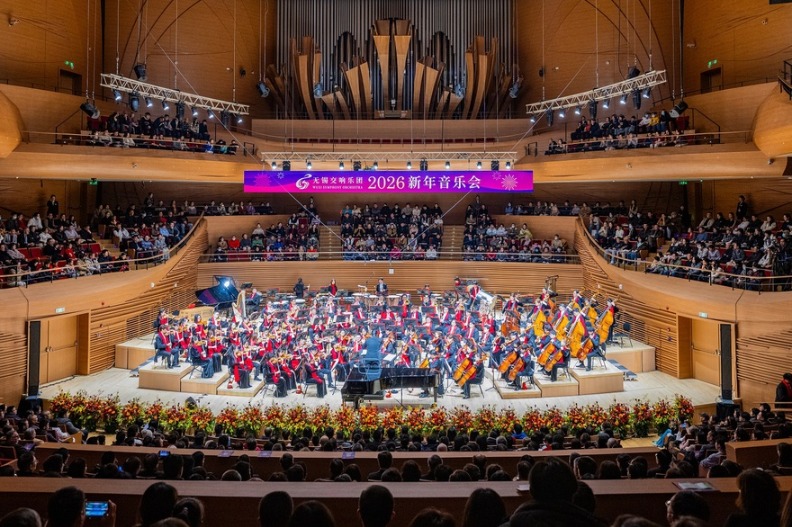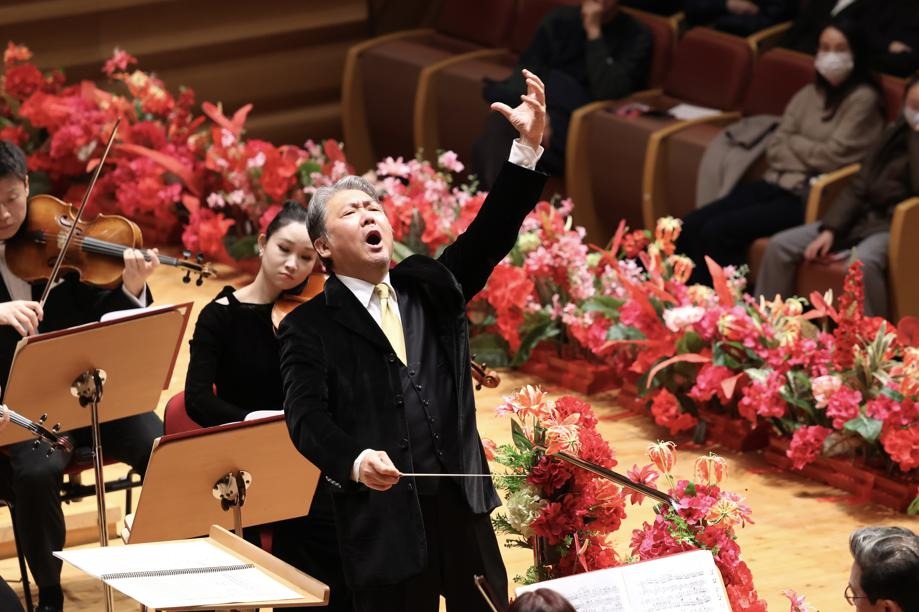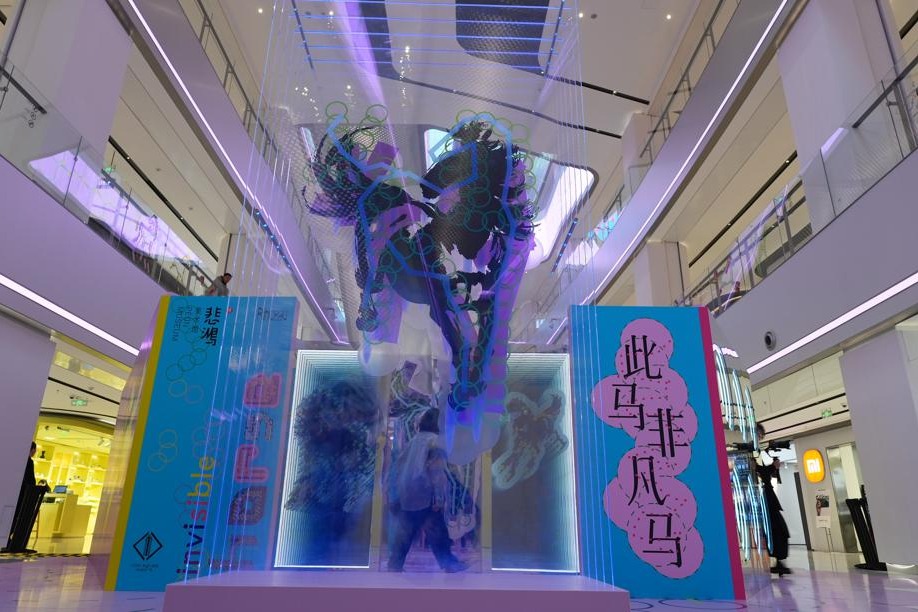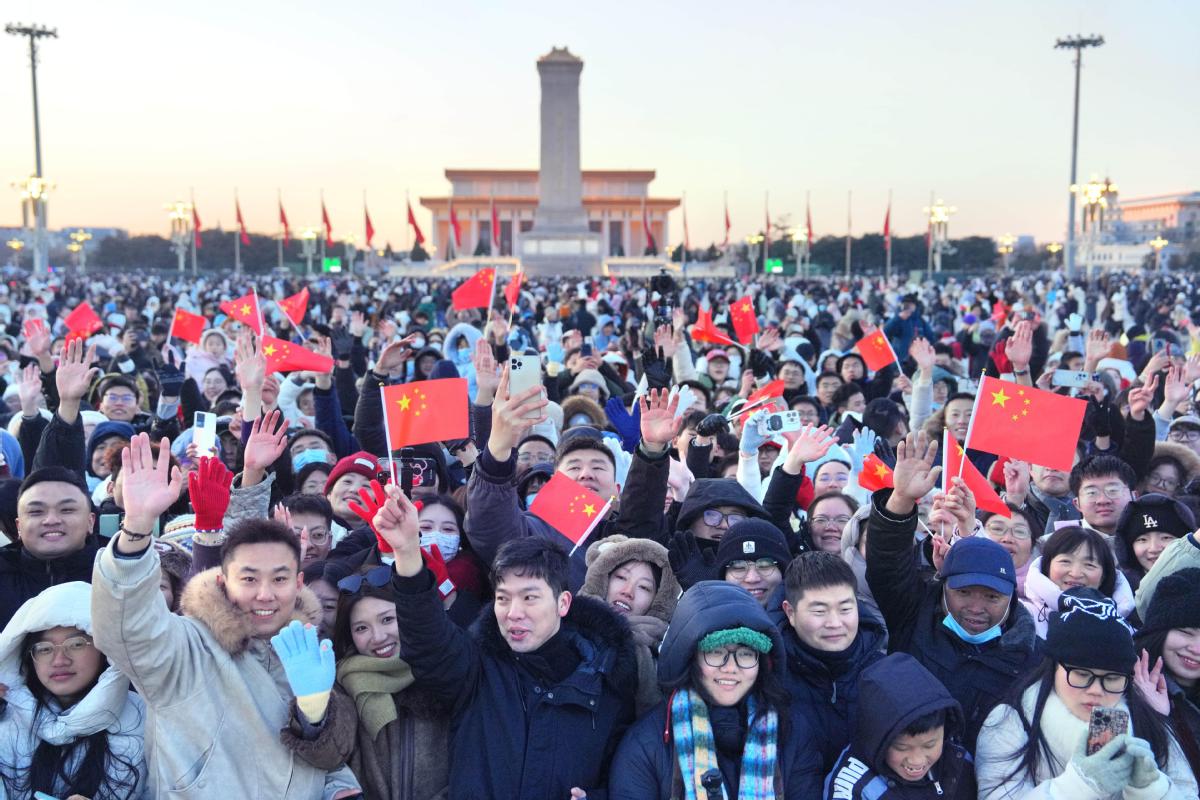Bus companies' pollution-reduction plans riding on use of clean energy vehicles

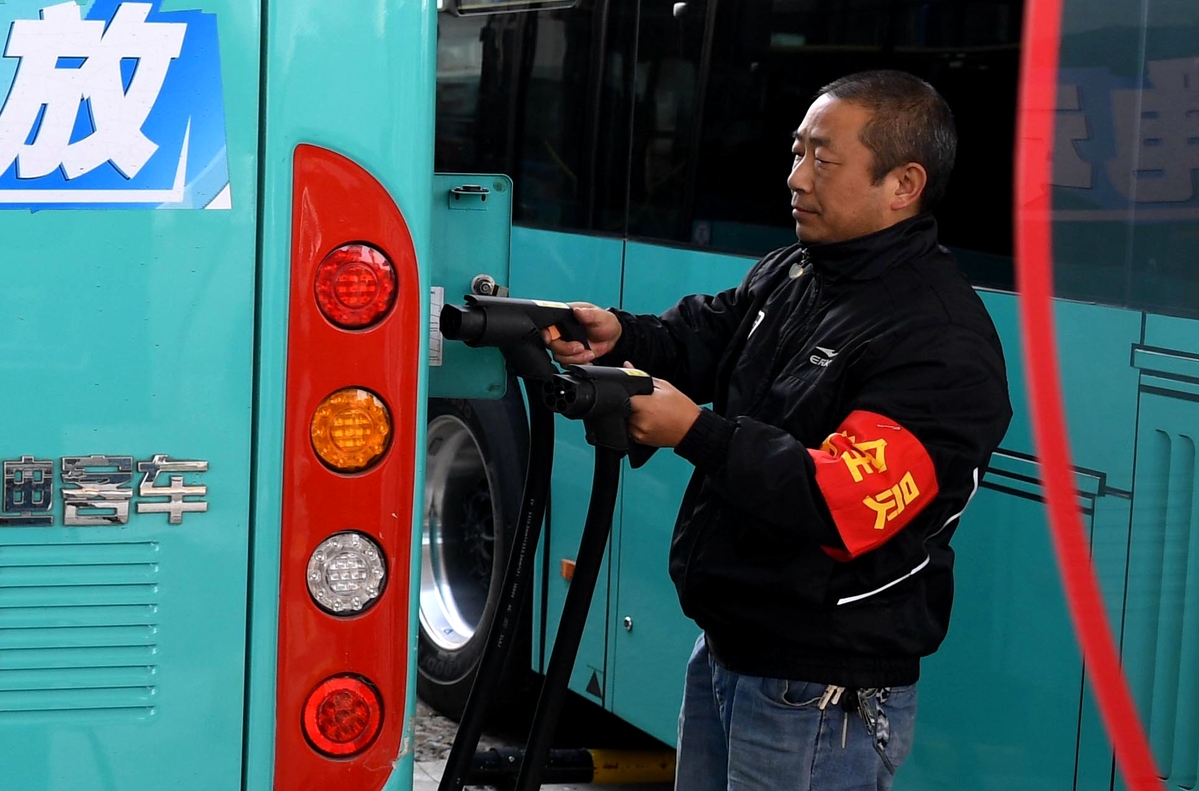
Operators are introducing electric and hybrid models to cut emissions, as Zhu Lixin reports from Bengbu, Anhui and Qingdao, Shandong.
Many of China's larger cities are home to millions of residents and see thousands of buses in operation every day, resulting in pollution from exhaust emissions.
In response, a large number of cities are planning to improve air quality by replacing traditional diesel-or gasoline-powered fleets with clean energy electric and hybrid petroleum-electric or gas-electric vehicles, according to national traffic and transportation authorities.
Two of those cities are Bengbu, Anhui province, and Qingdao, Shandong province, which are making efforts to introduce modern, nonpolluting vehicles on inner-city routes.
"Electric buses are regarded as the most effective vehicles in cutting exhaust emissions to improve air quality," said Lyu Jiayu, head of the Bengbu bureau of traffic and transportation.
"They are also quieter and more comfortable, which improves passengers' travel experiences."
As the city's only player in the inner-city bus service sector, the Bengbu Bus Group operates about 1,700 buses on 60 routes and employs 3,570 people, including 1,653 drivers.
Since 2012, the city has provided more than 1,000 new buses-including 721 electric vehicles and 62 hybrids-for the State-owned operator.
Lyu said Bengbu, a third-tier city with a population of more than 3 million, stopped purchasing traditional buses in 2015, but still has more than 900 conventional vehicles in service. They will be replaced by 700 electric buses by 2020.
Finances
While the promotion of electric buses is not hard for middle-tier cities such as Bengbu, the biggest challenge lies in formulating financing plans for the replacements, according to officials.
The city began using electric buses in 2015, when Bengbu Bus put 50 rented vehicles into service, along with three hybrids.
"If we had bought the buses, they would have cost 1.8 million yuan ($272,000) each. We would have had to pay the total within three years, which could have placed great financial pressure on the company," said Sa Ning, president of Bengbu Bus.
Instead, the company pays 160,000 yuan annually to rent each bus on an eight-year lease, according to Sa. Most of the vehicles operated by Bengbu Bus are made by BYD Co, which specializes in vehicles and rechargeable batteries.
"We pay BYD 1.28 million yuan per bus over the eight-year lease, while it also receives considerable subsidies from the central and provincial governments," Sa said, adding that the subsidies are not based on production figures, but on the number of buses in operation.
He didn't disclose the scale of the subsidies BYD receives, but "the combined total for rental and subsidies is definitely more than 1.8 million".
- Cooperation can boost cross-Strait integration
- Global experts hail Xi's people-centered message
- Trips promote equality and coexistence
- Interest in Turkiye soars among Chinese tourists after introduction of visa-free entry
- Yunnan e-bike fire probe identifies raft of failings
- Investigation report released on e-bike fire that killed 8 in Southwest China

















